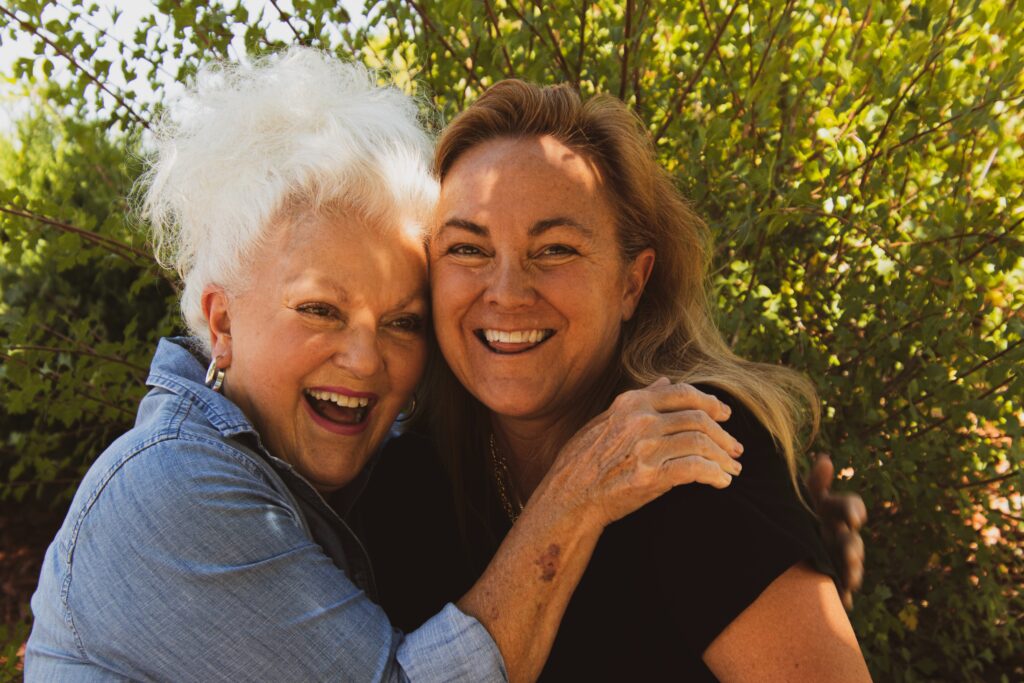Today’s 65-year-olds are expected to live to an average age of 88 years for women and 85 years for men. We’re spending more time in retirement than previous generations and therefore need more funds to support ourselves and the lifestyles we wish to lead.
While it’s an easy decision for some, deciding when and whether to retire can be a daunting decision for others, so we’ve written this article as a general guide to help you get started.
This article is separated into three parts and explores:
- The six things to consider before retiring
- What to do in retirement to help you lead a fulfilling life
- How to take retirement for a test drive
Six things to consider before retiring
There are many considerations when deciding if and when to retire. Here are some things to consider to decide whether you’re ready for retirement.
Have you thought about the retirement you want?
Before retiring, it’s important to decide what you want this next phase of life to look like, so you can prepare for it, both emotionally and financially.
Start by asking yourself these questions:
- Are you hoping to spend the rest of your life jet-setting from one country to the next, or do you wish for a quieter retirement at home with your family and friends?
- Will you be regularly entertaining (restaurants, theater, concerts, etc.) yourself outside the home, or will you cook and entertain at home?
- Are you planning to downsize your home, move cities, or stay in your current home?
If you are spending retirement with a spouse or partner, make sure your visions for the future align so there are no emotional and financial issues to contend with in later years.

Do you have something to do in retirement?
This is one of the most important things to consider but it’s one of the most overlooked areas during the planning phase.
Having something to do, especially if it allows you to be socially engaged and physically active, will help prevent cognitive decline and memory problems later in life.
Regardless of what it could be, aim to engage in at least one stimulating or rewarding activity every day. That could be volunteering for a cause you believe in, working part-time, looking after your grandchildren, traveling, starting a new hobby, trying a new sport, or pursuing an existing passion.
Do you have a support network?
Making time to meet with friends and family will play a critical role in keeping you fulfilled in retirement. Not only will it help combat feelings of loneliness and social isolation, it will help ward off a host of mental and physical disorders!
At Stitch, we understand that making friends as an adult can be hard, especially in retirement. When we’re younger, life brings us opportunities to make new social connections without us needing to put too much thought into actively seeking them out, whether that’s at school, college, in the workplace, or meeting other parents through our kids.
At some point, however, those opportunities stop happening. Friends can drift apart, you might move to a new city, you may get divorced, and of course, you can lose friends because of illness and even death.
If you don’t have a support network to rely on during retirement, know that it’s never too late to find one! Explore these 5 tips on how to make friends as an adult.

Are you excited by the prospect of retirement?
As you approach retirement age, you may discover your values and priorities change. You may no longer want to spend your waking hours at a full-time job, but may now wish to dedicate your time to traveling, spending time with your grandchildren or loved ones, or pursuing a new hobby.
Being excited at the prospect of retirement and everything it entails could be one of the signs you’re ready to retire and embark on this next chapter of your life.
If retirement doesn’t entice you, perhaps reconsider if it’s the best decision for you. Remember, not everyone needs to stop full-time work once they reach retirement age. Warren Buffett is currently 92 years old and has no plans to retire!
Are your finances in order?
Before you consider retiring, it’s best to examine your finances to make sure you can support yourself financially — and any dependents you may have — when your regular income ceases.
While examining your finances may be daunting, it’s essential to do so so you are not forced back into the workforce because of financial necessity at a later stage. Ask yourself the following questions as a way of determining how financially prepared you are for retirement:
Am I debt free?
If you have outstanding debts such as a home loan or car repayments, it may be best to delay retirement until these debts and obligations can be whittled down. Having said that, if you are set on retiring but still have outstanding debts, a part-time job can help with these bills.
Do I have children or dependents to support?
If you are financially supporting family members (i.e., children), it may be difficult to retire, especially with all the unexpected costs that can arise from raising children and caring for dependents. Be sure your retirement budget and savings can support your loved ones before retiring.
Have I created a retirement budget?
According to the Australian Institute of Health and Welfare, today’s 65-year-olds are expected to live to an average age of 88 years for women and 85 years for men. That means a retirement budget is necessary to make sure you’re able to support yourself and enjoy a fulfilling retirement in the long term.
When creating a budget, we need to ensure that the amount we spend does not exceed the amount we receive as income. Calculate your necessary monthly expenses (rent, groceries, utility bills, healthcare) and add them to your ‘wants,’ which are classified as entertainment, travel, gifts, and recreational expenses.
Then, calculate how much you’ll be receiving as income in retirement. This could come from various sources including social security, IRAs, superannuation, or your investments.
Subtract your monthly expenses from your income, leaving room for inflation, taxes, and unexpected expenses.
Try this free budgeting calculator from The Balance to get started.
Is my portfolio in order?
When was the last time you looked over your portfolio (property, shares, cryptocurrency, etc.) and examined how it was performing? If it’s been a while, be sure to look over it before retiring.
If your investment portfolio has recently taken a hit, your nest egg may not be as large as you thought. If that’s the case and you were hoping to live off the dividends of certain investments, you may need to reconsider this strategy.
The above is a very simplistic guide, so be sure to research or consult a financial planner to ensure you’re receiving the correct information for your unique circumstances.

Is your health deteriorating?
A 2009 study examined whether a person’s health improved or deteriorated prior to and after retirement. 14 714 employees from across multiple French national gas and electricity companies were surveyed.
The study found that if a person had ideal working conditions, retirement made no difference to their overall health.
If a person worked in a poor work environment and already experienced poor or declining health, they saw the most significant improvement to their health if they retired. This improvement was maintained throughout the seven years after retirement.
If your health is deteriorating and you don’t work in good conditions, this could be one of the signs you’re ready to retire.
How to spend your time in retirement
Retirement comes with more time and freedom, so be sure to spend your time on things that bring you joy and help you lead a fulfilling life. Here are some ideas to help you get started.
Be socially active
As mentioned above, meeting with friends and family plays a critical role in helping combat our feelings of loneliness and social isolation. Retirement can be lonely for some, especially as we transition from speaking with our colleagues and barista daily to engaging with no one.
Research conducted by the late John T. Cacioppo, Ph.D. (former director of the Center for Cognitive and Social Neuroscience at the University of Chicago) found that people who experienced social isolation and loneliness were at a higher risk of developing certain physical and mental conditions. The conditions included high blood pressure, obesity, heart disease, anxiety, depression, Alzheimer’s disease, a weakened immune system, cognitive decline, and even death.
Essentially, if we lead social lives, we can help ward off a host of mental and physical disorders and positively impact our life.
No matter how old you are, it’s never too late to reconnect with old acquaintances or develop new friendships. If you’re interested in the latter, there are many social groups, clubs, and interest-based organizations you can join. Stitch is one such community dedicated to connecting like-minded individuals over 50.
Learn six reasons why it’s important to stay socially active as we age.

Move your body regularly
We’ve all been told of the benefits of exercise on our physical health. From maintaining our weight, building our strength, and helping fight heart disease and diabetes, moving our bodies is one of the most important ways to keep our physical body functioning efficiently.
Exercise also does wonders for our mental health, which is why it’s imperative we continue moving our bodies in retirement. Exercise produces endorphins, otherwise known as the “feel good” hormone, which relieves our stress and makes us feel happy and confident.
It also plays a part in keeping our minds sharp and our memory intact. Moving our bodies pumps blood to the brain, helping us think more clearly. It also increases the connections between our brain’s nerve cells, helping protect our memory.
Don’t let retirement be an excuse for not exercising. There are many sports you can play based on your experience level and interest. From pickleball and hiking to swimming and tennis, there’s bound to be a sport or exercise program that interests you!
Do things you love and enjoy
As mentioned above, having something to do in retirement is important as it’s going to help prevent cognitive decline and memory problems, and keep you engaged and loving life. So be sure to pursue your interests and do things you love.
Also, if you engage in activities you love, your stress levels and blood pressure reduce, and you experience greater feelings of peace and positivity. There’s not much more to it! So be sure to pursue hobbies and sports that interest you and spend time with people you love.

Volunteer for a worthy cause
Volunteering is an enjoyable and rewarding way to give back to our community that has many positive benefits on our mental health, making it a great way to spend our time in retirement.
In a study published in the Journal of Happiness Studies in 2020, researchers examined data from nearly 70,000 research participants in the UK who received surveys about their volunteering habits and mental health. They were surveyed every two years, from 1996 to 2014.
Study participants who volunteered at least once a month reported better mental health and well-being than participants who volunteered on an infrequent basis or not at all. And those participants who volunteered became happier over time.
Regardless of your interests or passions, there will surely be a volunteering opportunity near you. Do you love animals? Reach out to animal shelters in your local area and enquire about their volunteering opportunities. Are you passionate about helping the homeless? Seek opportunities that allow you to provide care packages to those who need it most.

Aggie from Toronto, Canada, was passionate about addressing loneliness and social isolation in people over 50, as she was experiencing these feelings herself. Becoming a Community Champion Volunteer for WipeOutLoneliness.org (the not-for-profit community at the heart of Stitch) required her to host regular activities for the Stitch community as a way of helping members — who are all over 50 years old — stay connected, entertained, and supported.
Since becoming a volunteer, Aggie’s social events, dance classes, and online discussions have enriched the lives of many other members, and she’s made wonderful friends along the way.
As she says, “I was working full time, single, lonely and isolated… When I started volunteering, I wanted to help and fill my lonely spare time with something meaningful. I didn’t know that by helping others, I would be helping myself the most. Several months after becoming a volunteer, I can now say I am busy, happy, and have plenty of friends who are Stitch members in Toronto, Ontario, and worldwide!”
You can read more about Aggie’s story here.
Look after your mental health
Looking after our mental health as we age is crucial if we want to maintain our emotional, psychological, and social well-being. Without it, it becomes difficult to handle stress and anxiety, relate to others, and live fulfilling lives.
While it’s by no means a comprehensive list of ways we can look after our mental health, Ten ways to improve our mental health as we get older is a great place to start if you’re just getting started.
Take retirement for a test drive
If you want to test whether you are prepared for retirement, The Balance recommends a trial where you take some time off work and:
- Pursue a passion or try a new hobby that you planned for retirement
- Volunteer for a cause you believe in
- Organize and attend social outings with your friends
- Spend quality time with your grandchildren and family
Several weeks of the above will give you an understanding of whether you are ready to move on from your full-time job, permanently.
Some even trial a ‘soft’ retirement, in which they don’t leave the workforce entirely but scale back to a part-time role, whether in the company they are working for or elsewhere. This is a great way of easing into full-time retirement, as you still enjoy the benefit of a regular paycheck while having more time to explore other pursuits.
The idea that retirement is a ‘permanent vacation‘ wears off very quickly, so having a part-time job could be beneficial.

That’s all, folks
The above suggestions are by no means a comprehensive list of things you need to consider before and during retirement but are a general guide to help you get started. Be sure to research what is required for your unique circumstance and consult a professional if necessary.
If you’re in the process of retiring or have already done so, leave a comment and share your experiences so far. Or, if you have another suggestion not mentioned above, please share it with us!
“Beach” image at the top of this post: Photo by Aaron Burden on Unsplash




